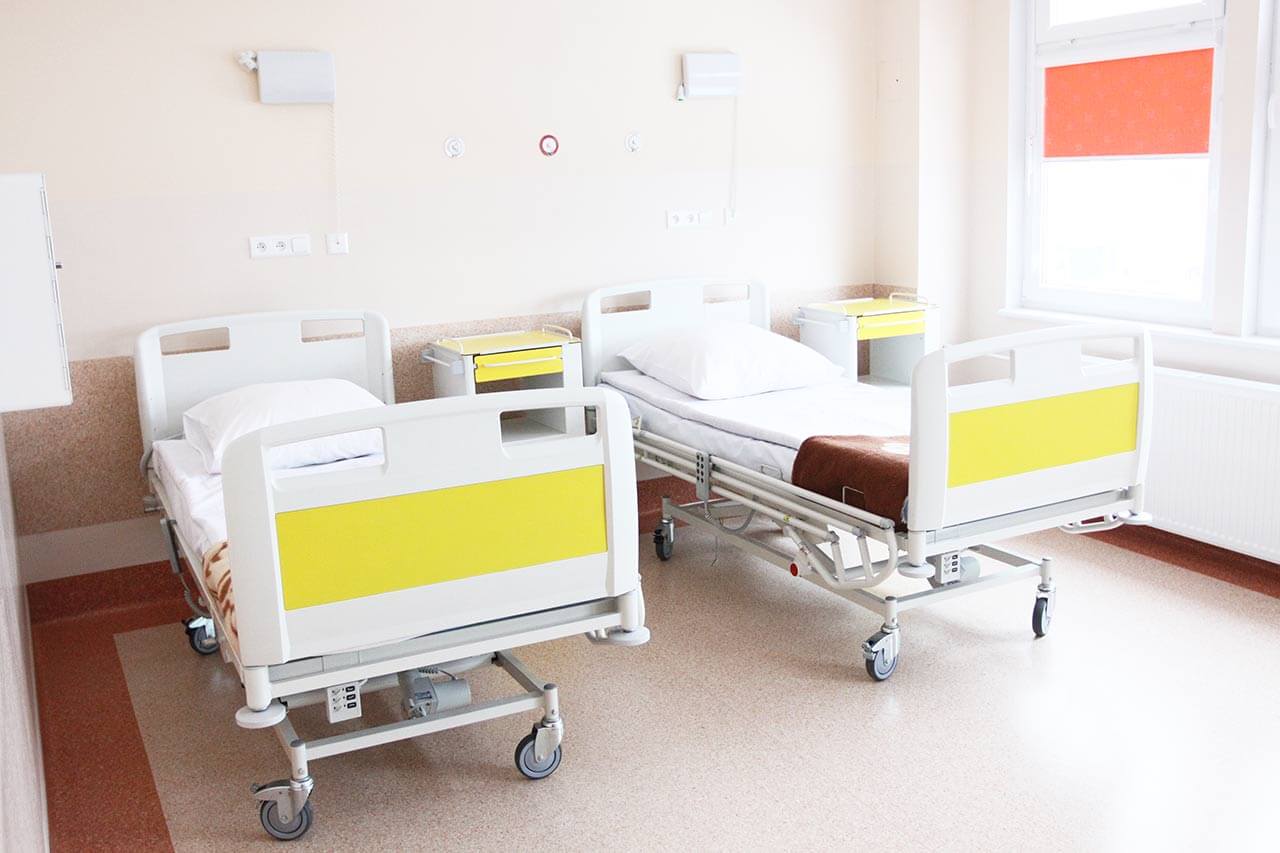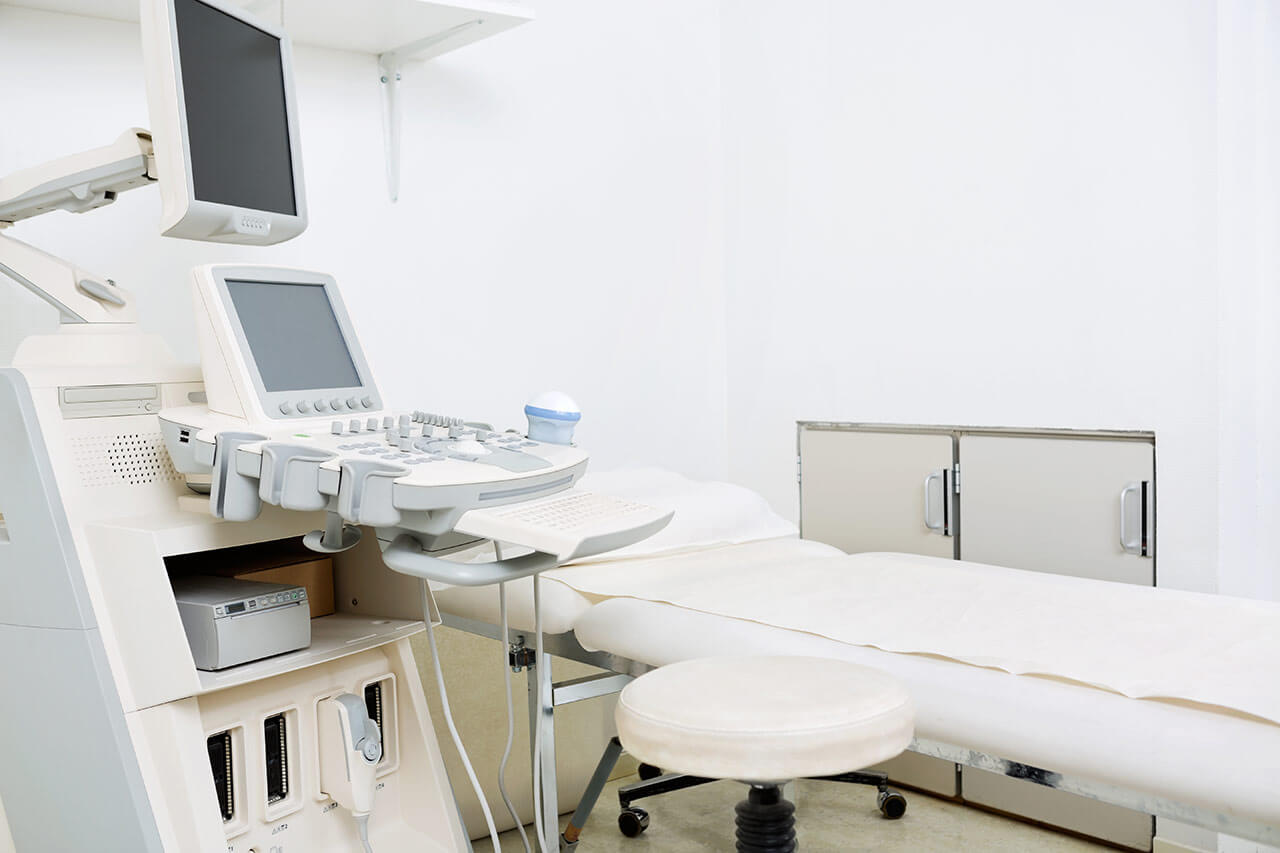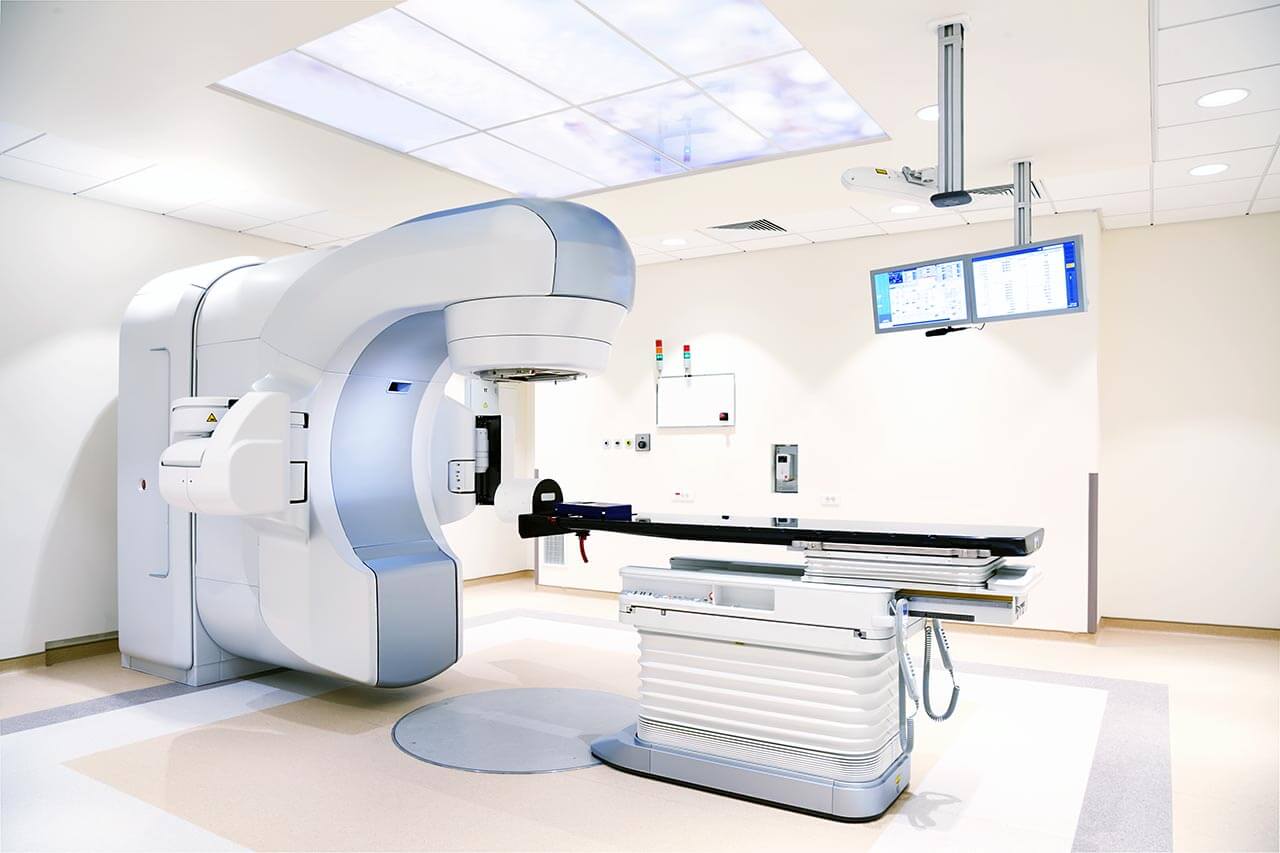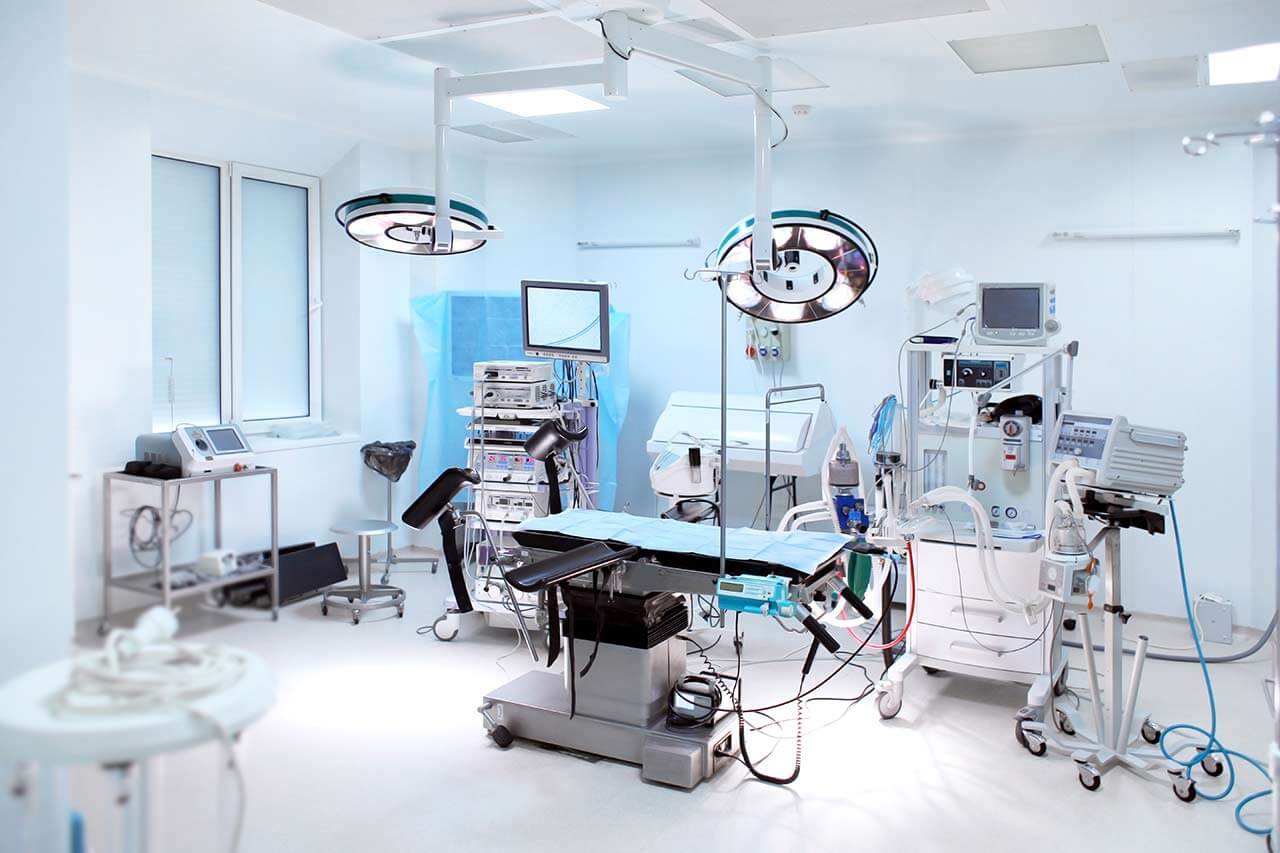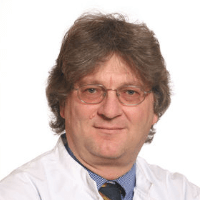
The program includes:
- Initial presentation in the clinic
- clinical history taking
- review of medical records
- physical examination
- neurological examination
- laboratory tests:
- complete blood count
- biochemical blood test
- inflammation markers (CRP, ESR)
- blood coagulation analysis (aPTT, PT, INR)
- electrophysiology study (if indicated clinically)
- CT/MRI scan
(if indicated clinically, additional cost is 650/1200€) - differential diagnosis with other neurological diseases
- nursing services
- consultation of related specialists
- treatment by chief physician and all leading experts
- explanation of individual treatment plan
(the cost of medicines is not included)
Required documents
- Medical records
Service
You may also book:
 BookingHealth Price from:
BookingHealth Price from:
About the department
According to the Focus magazine, the Department of Neurology at the University Hospital Duesseldorf ranks among the top German departments specializing in the treatment of multiple sclerosis and Parkinson’s disease!
The department offers the full range of services for the treatment and diagnostics of diseases of the brain, spinal cord, peripheral nerves, and neuromuscular diseases. The department is among the leading medical institutions of this kind in Germany. The Chief Physician of the department is Prof. Dr. med. Hans-Peter Hartung.
The department has an ultramodern Stroke Unit to provide effective care for stroke patients. It is certified by the German Stroke Society and the German Stroke Foundation as a stroke unit of supraregional significance. In close cooperation with the Departments of Radiology, Vascular and Neurosurgery, Cardiology and Hemostaseology, the department guarantees the best diagnostics and treatment of strokes and pre-stroke conditions. In addition, there is an active cooperation with the specialized institutions, which specialize in neurorehabilitation for the restoration of lost or impaired functions of the nervous system.
The diagnostic options of the department include:
- Vascular diagnostics
- Extracranial doppler and duplex ultrasound
- Transcranial doppler and duplex ultrasound
- Electrophysiological examinations
- Electroencephalography
- Electromyography/neurography
- Registration of evoked potentials
- Diagnostics of the autonomic nervous system (for example, heart rate variability analysis)
- Diagnostics of the visual analyzer pathway
- Visual evoked potentials
- Multifocal visual evoked potentials
- Optical coherence tomography (OCT)
- Electronystagmography
- Neuropsychological diagnostics (for example, dementia screening, examinations of memory, attention, mental abilities, etc.)
- Cerebrospinal fluid analysis
- Determination of neutralizing antibodies against interferon-beta
- Magnetic resonance imaging (MRI)
- Computed tomography (CT)
- Positron emission tomography (PET) and PET-CT
- Single-photon emission computed tomography (SPECT)
- Other diagnostic methods
The main clinical focuses of the department include:
- Diagnostics and treatment of cerebrovascular diseases (for example, stroke, blood circulatory disorders (transient ischemic attacks, haemorrhage))
- Diagnostics and treatment of immune-mediated diseases of the brain and spinal cord (for example, multiple sclerosis, optic nerve myelitis)
- Diagnostics and treatment of immune-mediated diseases of the peripheral nervous system (for example, Guillain-Barré syndrome) and polyneuropathy
- Diagnostics and treatment of neuromuscular diseases (for example, myasthenia, polymyositis, dermatomyositis)
- Diagnostics and treatment of Parkinson's disease and other motor disorders
- Diagnostics and treatment of neurological diseases in HIV infection
- Diagnostics and treatment of dementia
- Diagnostics and treatment of pain syndromes
- Diagnostics and treatment of other neurological diseases
Curriculum vitae
Education
- 1973 - 1980 Undergraduate training at the Universities of Duesseldorf, Germany, Glasgow, Scotland, Oxford, London (National Hospital for Nervous Diseases Queen Square), England; Electives at Johns Hopkins University Medical School, Baltimore and Harvard Medical School, Boston.
- 1980 Graduation (Doctor of Medicine) and registration as a Physician in Duesseldorf, Germany.
- 1980 - 1982 Research Fellow in Immunology at the Institute for Medical Microbiology, University of Mainz, Germany.
- 1981 Doctoral thesis defense, Magna cum laude, University of Mainz, Germany.
- 1982 - 1987 Resident in Neurology and Research Fellow in Neuroimmunology, Department of Neurology, University of Duesseldorf, Germany.
- 1987 Board examination as a Neurologist, University of Duesseldorf, Germany.
Positions
- 1987 - 1988 Senior Consultant, Department of Neurology,
- University of Duesseldorf, Germany.
- 1989 Assistant Professor, Department of Neurology, University of Duesseldorf, Germany.
- 01/1990 Associate Professor, Department of Neurology,
- Head of Multiple Sclerosis Clinical Research Group, Julius Maximilians University of Würzburg, Germany.
- 07/1990 Professor and Vice Chairman, Department of Neurology, Julius Maximilians University of Würzburg, Germany.
- 10/1997 Professor and Chairman, Department of Neurology, Karl Franzens University of Graz, Austria.
- 11/2000 Offer to chair the Section of Clinical Neurosciences, University of Glasgow, UK.
- Since 12/2001, Professor and Chairman, Department of Neurology, Heinrich Heine University of Duesseldorf, Germany.
Research Interests
- Experimental and clinical neuroimmunology.
- Pathogenesis of and experimental therapies for multiple sclerosis, Guillain-Barre syndrome.
- Neuroimaging of demyelinating and ischemic diseases.
- Neuromuscular diseases.
Awards
- 1974 - 1980 Scholarship of the German National Scholarship Foundation.
- 1989 Hörlein Award, Society of Friends and Supporters of the Heinrich Heine University Duesseldorf.
- 1990 Langheinrich Award for Multiple Sclerosis Research, Free University of Berlin and Berlin Neurological Society.
- 1992 Myopathie Award, German Society for Muscular Diseases.
- 1996 Käthe Hammersen Prize of the German Society for Multiple Sclerosis.
Membership in Scientific Societies
- Corresponding Fellow of the American Academy of Neurology.
- American Association of Immunologists.
- Corresponding Member, American Neurological Association.
- Foreign Member of the Association of British Neurologists.
- Member of the Executive Committee of the European Neurological Society.
- European Neuroscience Association.
- German Neurological Society.
- German Neuroscience Society.
- Member of the Steering Committee, Inflammatory Neuropathy Consortium.
- International Society of Immunopharmacology.
- Member of the International Advisory Board, International Society for Neuroimmunology.
- Member of the Medical Advisory Board, Guillain-Barré Syndrome Foundation.
- Member of the Advisory Board, Peripheral Nerve Society.
- Fellow, Royal College of Physicians, London, UK.
- Society for Immunology, Germany.
- Stroke Council Fellow, American Heart Association.
Photo of the doctor: (c) Universitätsklinikum Düsseldorf
About hospital
According to the authoritative Focus magazine, the University Hospital Duesseldorf ranks among the top Germany hospitals!
The hospital is an excellent example of a combination of high-quality health care, research and teaching activities. With more than 50,000 inpatients and about 300,000 outpatients every year, the hospital is one of the largest and most prestigious medical institutions in Germany and Europe.
Modern, safe and sparing diagnostic and therapeutic methods guarantee effective treatment of various diseases and their consequences. All therapeutic processes are based on an interdisciplinary approach, which provides comprehensive medical care and optimal treatment result. Obviously, one of the key roles in the successful clinical practice of the medical institution is played by a highly qualified medical personnel, which consists of the best world-class doctors. The hospital also has a special advantage due to the structured equipment with the innovative medical technologies.
The hospital presents almost all fields of modern medicine. Special attention should be given to such focuses as oncology and hematology, stem cell transplantation, neurosurgery and neurology, urology, obstetrics and gynecology, hepatology, kidney transplantation, vascular surgery, cardiac surgery, pediatric surgery, pediatric oncology, etc.
In addition to the outstanding quality of medical services, the hospital guarantees each patient an attentive care, friendly atmosphere, as well as sensitive and respectful attitude.
Photo: (с) depositphotos
Accommodation in hospital
Patients rooms
The patients of the University Hospital Duesseldorf live in comfortable single, double and triple rooms. The patient rooms are made in bright colors and modern design. The room furnishing includes an automatically adjustable bed, a bedside table, a wardrobe, a telephone, a multimedia device (TV, radio, Internet access), a table and chairs for receiving visitors. To use the phone and multimedia device, the patient should have a special chip card, which can be purchased at the reception. In the pediatric departments multimedia device can be used for free.
Meals and Menus
The patients of the hospital are offered a varied, tasty and healthy diet. Every day there are three menus to choose from for adults and four menus to choose from for children, while it is possible to develop an individual menu. When pre-ordering, the international patients may have dishes of various cuisines of the world, for example, Asian and African cuisine. If a patient needs a diet in accordance with the clinical indications, he will be provided with a special diet menu, including drinks.
Every day, the nurses inform the kitchen workers about the patient wishes using an electronic data processing system. Immediately before serving food, there are printed special cards, which indicate for which patient this or that dish is intended.
Also, the hospital houses a cafeteria with a rich selection of delicious, healthy dishes, snacks and drinks.
Further details
Standard rooms include:
Religion
Christian priests are available for the patients at any time. Representatives of other religions may be requested at any time.
Accompanying person
Your companion may stay with you in your room or at a hotel of your choice during the fixed program.
Hotel
You may stay at the hotel during the outpatient program. Our employees will support you for selecting the best option.
The hospital offers a full range of laboratory tests (general, hormonal, tests for infections, antibodies, tumor markers, etc.), genetic tests, various modifications of ultrasound scans, CT scans, MRI and PET / CT, angiography, myelography, biopsy and other examinations. Treatment with medications, endoscopic and robotic operations, stereotaxic interventions is carried out here, modern types of radiation therapy are also used. The hospital offers patients all the necessary therapeutic techniques.
- Dermatosurgery
- Skull base surgery
- Gastric bypass and bandage
- Removal of lung metastases
- Interventions on the spine
These are skin cancer (including melanoma), head and neck tumors, pathological changes in the chest (including funnel chest), obesity, liver diseases, HIV and other infectious diseases, varicose veins, aortic aneurysm, carotid artery stenosis, joint diseases and other pathologies.
- Dermatology
- Oncology
- Otorhinolaryngology
- Endocrinology and diabetology
- Orthopedics and traumatology
Over 800 highly qualified physicians work at the hospital.
